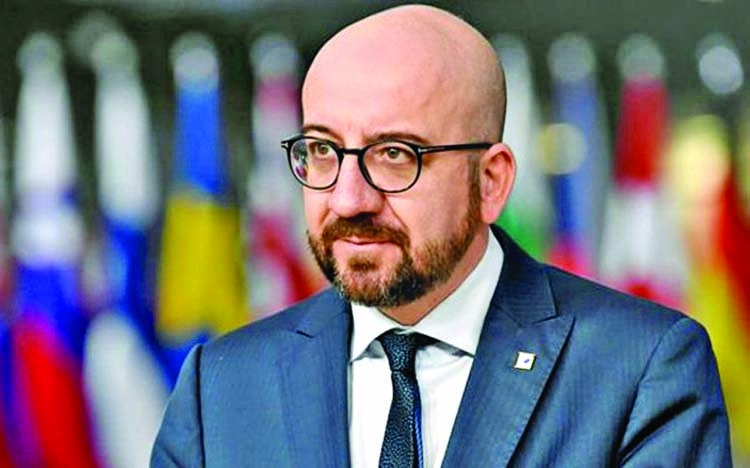Belgium Prime Minister offers to resign

Belgium Prime Minister Charles Michel offered to resign on Tuesday after opponents tabled a no confidence vote in a political crisis triggered by differences over immigration.
In office since 2014, Michel lost the support of the biggest party in his coalition, the Flemish N-VA, last week in protest at his support of a UN pact to foster cooperation over the world's 21 million refugees. On Tuesday, the 42-year-old lawyer sought backing from left-wing opposition parties so he could hold on to power until parliamentary elections in May.
Instead, the socialists and greens tabled a motion of no confidence in parliament, triggering his offer to quit. "I must respect the situation. I therefore take the decision to offer my resignation and will go to the king," Michel, who has been in politics since winning a provincial councilor post at 18, told parliament.
Belgium's King Philippe has not taken a decision on whether to accept his offer, the royal palace said.The king may ask Michel to stay as a caretaker but with limited powers, potentially hampering efforts to rein in the budget and reform social security.
He could also speak to other political leaders to try and resolve the issue, or dissolve parliament and trigger an early vote in 40 days. Belgium's political crisis comes as Europe heads into election mode next year, with seven EU countries plus the European Parliament all going to the polls.
The bloc has been grappling with an upsurge of migrants since 2015 when more than 1 million people entered Europe, many fleeing civil war in Syria and poverty in Africa. T
he United States and some other nations, mostly in former communist Eastern Europe, have opposed this year's UN pact, arguing it could encourage immigration. After the N-VA's departure, Michel's slimmed down three-party coalition consisted of his French-speaking liberal MR and two Flemish parties.
In July, 196 UN members agreed the Global Compact for Safe, Orderly and Regular Migration. It was signed by 164 countries, with the US and a number of European states - including Austria, Hungary, Italy, Poland and Slovakia - refusing to formally adopt the agreement.
Over the weekend, thousands of demonstrators marched in Brussels against the pact. Police deployed tear gas and water cannon as clashes broke out. A counter-protest organized by left-wing groups and charities in the city centre drew about 1,000 people.
